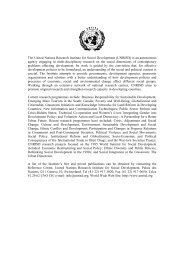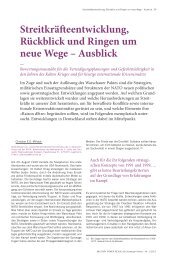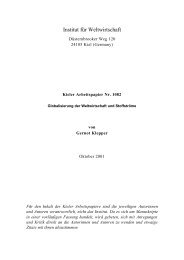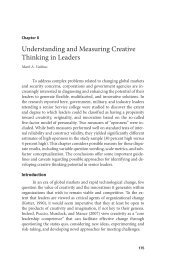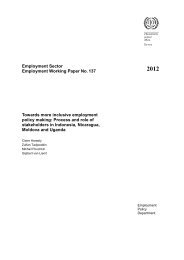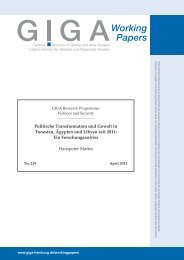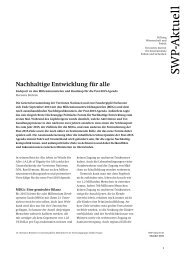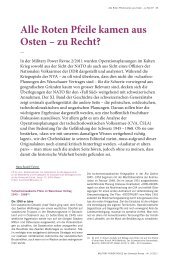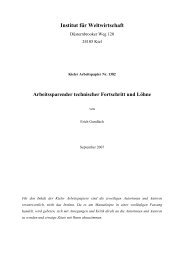Global Jihad: temi, piste di diffusione e il fenomeno del reducismo ...
Global Jihad: temi, piste di diffusione e il fenomeno del reducismo ...
Global Jihad: temi, piste di diffusione e il fenomeno del reducismo ...
You also want an ePaper? Increase the reach of your titles
YUMPU automatically turns print PDFs into web optimized ePapers that Google loves.
fronts, and moving its activity to other parts of the world, probably back to the<br />
Middle East on one hand, and to Muslim communities in the West, on the other. The<br />
global earthquake of September 11 attacks in the United States, and the global war<br />
against terrorism, <strong>di</strong>d not actually change the roots of Islamist rage, that feeds this<br />
phenomenon and its violent expressions, and encourages Muslim publics to support,<br />
if not Islamist terrorism at least the ideas that it represents.<br />
Five years after the September 11 attacks—the turning point of global terrorism—TV<br />
channels, newspapers and journals, are inundated with reports, articles, op-eds,<br />
analysises, speeches, and other forms of assessments, on the current status of al-<br />
Qa’ida. Their various authors provide their opinions whether al-Qa’ida is declining, is<br />
increasing its power, is on the eve of its demise, or is unabatedly promoting its<br />
threatening capab<strong>il</strong>ities on a global scale. The conclusions of these assessments are<br />
oftentimes contra<strong>di</strong>ctory, leaving the Western public confused as to how it should<br />
regard the last five years of global <strong>Jihad</strong>i terrorism.<br />
Naturally, Western lea<strong>di</strong>ng elements in the fight against <strong>Jihad</strong>i terrorism are<br />
interested in portraying the threat and image of al-Qa’ida and global jihad as one in<br />
decline. They point at various successes such as the thwarting of terrorist plots and<br />
other operations; the k<strong>il</strong>ling and capturing of several senior al-Qa’ida operatives;<br />
improved cooperation in the field of global counter-terrorism; and a growing<br />
awareness among the society in many countries to the needs of tighter security<br />
measures. Western leaders also tend to belittle the role of the <strong>Jihad</strong>i insurgency in<br />
Iraq, Afghanistan, or Somalia, in affecting Western security. Some underestimate and<br />
misjudge the adaptive capab<strong>il</strong>ity and dynamism of global jihad, arguing that the<br />
targets of global jihad are static and independent of developments in certain regions.<br />
Furthermore, some Western leaders tend to point at the slow but positive advance of<br />
the democratic process in Middle Eastern countries, referring to general elections in<br />
Iraq, Egypt, and the Palestinian Authority (PA), municipal elections in Sau<strong>di</strong> Arabia,<br />
as well as to changes in the status of women in the Gulf States, and the “white<br />
revolution” that helped oust Syria out of Lebanon. They tend, however, to keep s<strong>il</strong>ent<br />
107





